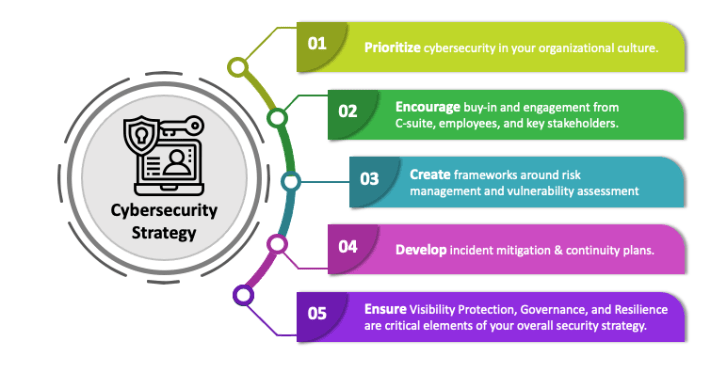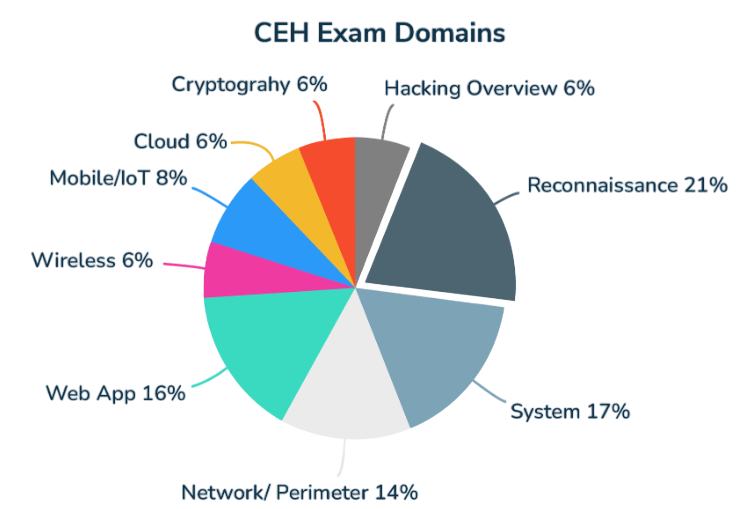
- Introduction
- What is the CEH Exam?
- CEH Exam Patterns
- Eligibility Criteria for the CEH Exam
- Steps to Register for the CEH Certification
- Tips for Getting Ready for the CEH Exam
- Conclusion
The Certified Ethical Hacker exam tests the candidate’s skills in ethical hacking and penetration testing. The candidates get about 4 hours to take the exam. You must be able to answer questions with at least about 70% to pass the exam, although it may be a slight variation. It’s crucial to be well-prepared and familiar with tools and techniques, including working in a Sandbox Environment. This allows clearing of which thereafter passes the CEH exam, then one can opt for various roles in cybersecurity. Advanced certifications and continuous professional development help hone a person’s skills.
Are You Interested in Learning More About CEH? Sign Up For Our Ethical Hacking Training Today!
Introduction
The demand for cybersecurity experts is at an all-time high, and among the most respected certifications falls under the category of the Certified Ethical Hacker, or CEH, exam. These cyberattacks are getting every day more sophisticated and complicated. Organizations are now turning to experts who will be able to predict and thwart the tactics of malicious hackers. Offered by the EC Council, Certified Ethical Hacker certification is based on the concept of bestowing knowledge to the professionals that would help them in analyzing the safety and security issues of systems, networks, or applications from an ethical hacker’s point of view. Preparing yourself for the ethical hacking exam is a precursor to quite an adventure of technical, problem-solving skills, and knowledge in Ethical Hacking Course. So, we’ve come up with an ultimate CEH exam prep checklist for the purpose of guiding you toward organizing your study sessions, mastering fundamental concepts, and ultimately succeeding in reaching the pinnacle of CEH certification.
What is the CEH Exam?
- The Certified Ethical Hacker, or CEH, is an international certification exam from the EC-Council that validates the skill and knowledge of a professional in cybersecurity areas through exercising ethical hacking and penetration testing.
- Being one of the most respected credentials within the cybersecurity industry, the CEH certification makes it evident that such a certified individual is capable of understanding and addressing vulnerabilities in systems, networks, and applications as malicious hackers would, but with ethical and legal purposes.

- Ethical hacking is sometimes known as white-hat hacking or penetration testing. In this type of hacking, the systems, networks, and applications are tested for vulnerabilities so that they do not get exploited by the cybercriminals before proper security measures are taken in advance to secure them. One crucial aspect of ethical hacking is Network Penetration Testing, where security experts simulate attacks on a network to identify potential weaknesses.
- Having said that, the CEH certification equips professionals with the skill of identifying vulnerabilities, testing their potentiality for exploitation, and improving the security posture of organizations. The CEH exam tests candidates on a large array of hacking techniques, tools, and methodologies that an ethical hacker uses in the real world.
- The pass proves that an individual can think and act like a hacker without crossing any boundaries of ethics or law and is qualified to identify and fix potential security risks.
- Visit the EC-Council website and establish an account. Fill out the online application form duly.
- Pay the exam fee, which varies according to the chosen mode of exam. While preparing for the exam, be aware of the risks of Cyber Defamation, where organizations may face harm from false or damaging online statements.
- Provide evidence of at least two years of working experience in information security.
- Alternatively, attend an EC-Council-approved official training program and get an exemption from work experience.
- Submit all prerequisites and payment, then book a date and venue for the exam.
- Take an amalgamated exam on hacking techniques, and vulnerability analysis. After passing the exam, CEH certification shall be issued.
To Earn Your CEH Certification, Gain Insights From Leading Ethical Hacking Experts And Advance Your Career With ACTE’s Ethical Hacking Training Today!
CEH Exam Patterns
The Certified Ethical Hacker (CEH) exam evaluates a candidate’s skills and knowledge in ethical hacking, focusing on key areas like network security, system vulnerabilities, cryptography, and ethical hacking methodologies. The exam consists of 125 multiple-choice questions, which must be completed within 4 hours. To pass, candidates typically need a score of around 70%, though this can vary slightly based on the exam version. The content covers various domains, including footprinting and reconnaissance, network scanning, system hacking, malware threats, social engineering, and web application hacking, among others. One important area to focus on is Keylogger attacks, where malicious software records keystrokes to steal sensitive information such as login credentials and personal data. Candidates should be familiar with tools like Nmap, Metasploit, and Wireshark, as well as advanced hacking techniques like SQL injection and session hijacking. Candidates must have two years of work experience in the information security field or complete EC-Council’s official training to sit for the exam. The cost of the exam is approximately $1,199 USD, and it can be taken through the EC-Council portal or Pearson VUE test centers. While formal training is not mandatory, it is recommended to attend an EC-Council training program for better preparation. To succeed, candidates should thoroughly study the official CEH curriculum, practice hands-on skills, and take mock exams to familiarize themselves with the exam format and time limits. Once certified, the CEH credential is valid for three years.
Eligibility Criteria for the CEH Exam
The EC Council has specified two conditions that will dictate whether or not the candidate can be eligible for the registration of the Certified Ethical Hacker exam. If he is eligible under either of the two, then he can go ahead. Here are the two conditions now. An applicant should have at least two years of experience in the Ethical Hacking Course. An applicant should have at least two years of experience in the cyber or information security field. Experience letters or any other form of evidence should support such an experience.

The academic background of the person should also point to that. Upon satisfying all of the above requirements, the candidate qualifies for directly appearing on the exam. Now, there is the alternative: obtaining training specifically for this exam. That official training must come from an EC-Council-accredited training center. If you do not qualify through experience to take this exam, please feel free to stop by Intellipaat, which is also an accredited training center and has an outstanding course on the certification pieces of training for the CEH v11 exam. Let us see all about this course towards the end of this blog once we have discussed the syllabus of the exam in its entirety.
Gain Your Master’s Certification in Cybersecurity by Enrolling in Our Cyber Security Expert Masters Program Training Course.
Steps to Register for the CEH Certification
To register for the CEH Certification, one must follow the following procedure:
Tips for Getting Ready for the CEH Exam
Know the CEH Exam Format
The CEH exam has 125 multiple-choice questions, which must be completed within 4 hours. Domains include network hacking, system hacking, web application security, malware analysis, and more. Create an understanding of these domains to focus your study on the most critical areas.
Official CEH Study Materials
Official EC-Council material only should be used to study effectively. Use the freshest material you can get out that contains CEH v11. Use the following: Official study guides. The materials provide elaborative exposures of the contents related to exam objectives EC-Council Courseware, which will support concepts in their living evolutions. Learning with official material will provide you with the proper content for the exams with the same structure.
Training Program
Though self-study is the backbone of learning, undergoing a professional course will speed up your training. You could opt for self-paced online classes or instructor-led classes. As you progress, it’s important to explore topics beyond traditional hacking techniques, such as the Internet of Things, which is becoming an increasingly popular target for cyberattacks. The courses are offered to provide all the syllabus of the CEH exam and practical experience from certified training experts.
Practice Hands-On Skills
Ethical hacking is very practical, so experience comes as a necessity. Use virtual labs and online platforms for the practice of safe ethical hacking techniques. There are real-time challenges like Hack the Box and TryHackMe that simulate the challenges you will come across in your ethical hacking exam. Learn the tools: Kali Linux, Metasploit, and Wireshark for hands-on penetration testing and vulnerability exploitation.
Join Study Groups and Forums
Preparing through joining study groups or discussion forums. Engage in the CEH community by accessing resources such as those found on Reddit (r/ceh), TechExams, or LinkedIn groups. This would be a good source of support, insight, and resources to help you clear up difficult concepts. You can share your strategy with others, discuss tricky topics, and learn from the experiences of others, including other candidates and certified individuals.
Emphasize your weaknesses
As you read, determine which areas you’re weak in and devote more time to reinforcing those areas. Whether it’s how network scanning tools such as Nmap work or how to perfect social engineering techniques, improvement in such areas will help give you a boost to better your chances of passing the ethical hacking exam. Collateral material to buttress the weak areas.
Go Through These Ethical Hacking Interview Question & Answer to Excel in Your Upcoming Interview.
Conclusion
The CEH exam stands as a viable certification for Ethical Hacking Course professionals in developing the skills required for a whole new approach to thinking and acting like an ethical hacker. With this certification, you will show them the ways through which you’d be able to find vulnerabilities, test security systems, and utilize techniques to protect organizations from cyber threats. Passing the Certified Ethical Hacker exam will require you to have theoretical knowledge of things combined with hands-on skills and an understanding of legal and ethical guidelines. More structured study plans, practical experience, and familiarity with the exam format will further lead to success. Official study materials should be utilized, practice exams done, and labs experienced for a proper knowledge base and confidence boost. Success in obtaining the CEH certification welcomes one to several career opportunities within penetration testing, ethical hacking, and many other applications that incorporate cybersecurity consulting.





